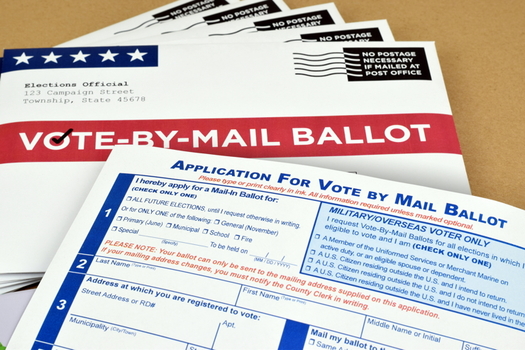 In his State of The State address yesterday, Governor Abbott declared election integrity as one of his priority items for the 87th Legislature. We fully support election integrity and are pleased that the governor has declared it an emergency item for the legislature to act on.
In his State of The State address yesterday, Governor Abbott declared election integrity as one of his priority items for the 87th Legislature. We fully support election integrity and are pleased that the governor has declared it an emergency item for the legislature to act on.
The importance of this issue must be considered through both a historical lens and against the backdrop of current events. The aftershocks of the November 2020 elections are still being felt, with large swathes of Americans believing that our electoral system has been compromised. Whether they are right or wrong in their concerns is a significant question, but even more pressing is the fact that our electoral system is in doubt at all.
Close elections have been around since our electoral system was first devised and they will always be a recurring feature of a healthy democracy. John Adams famously won the presidential election of 1796 by a mere 3 electoral votes, and his Vice President was even from the opposing party; a unique outcome in US history. Despite the close outcome of that election at a time when our nation was brand new and the peaceful transition of power was not yet fully established, the government maintained legitimacy because the election was widely perceived to have been free and fair.
That was then. Today, trust in the electoral system is failing and there has never been such doubt about our system, not even after the similarly close election of George W. Bush in the 2000 presidential election. Why was this time different? There are myriad reasons, but one of the main ones was the massive expansion of mail-in voting.
Pundits and politicians from both sides of the aisle have argued against the expansion or even the use of mail-in voting, on the basis that it is demonstrably less secure than in-person or absentee voting. Mail-in ballots are much more susceptible to fraud, sabotage or bureaucratic incompetence. Throughout 2020 there have been a plethora of stories depicting this, from ballots dumped by mail carriers, to 1 in 5 mail-in ballots being rejected in New York’s primary election. Even proponents of mail-in voting expansion admit that in-person and absentee voting are more secure than mail-in voting. This fact is not seriously disputed.
It is concerning then, that there are currently at least 8 bills filed by Texas legislators attempting to ease restrictions on the use of mail-in ballots. We cannot reject these bills strongly enough. Such legislation would infringe on the principles of individual liberty and limited government, and would serve to further erode the public’s confidence in the legitimacy of election outcomes. Every fraudulent vote stifles the voice of a legitimate voter. We see no reason to increase the risk of voter fraud nor the resulting higher number of fraudulent votes. It is not fair to those who have legally voted nor is it good for a healthy democracy. Proactively expanding use of the least secure method of voting will only further call into doubt the fairness of our electoral system. Increasing the risk of election fraud is an irresponsible idea, to put it mildly, especially now when political tensions are so high.
Those pushing for easier access to mail-in ballots will no doubt argue that such measures are intended to ensure everyone’s voice is heard, and that despite the higher risk of fraud, mail-in ballots are secure enough for the trade-off to be worth it. However, we should ask ourselves the question, does mail-in voting meaningfully increase the ability of a given voter to be heard?
Naturally the most obvious benefactors would be voters who are physically unable to go to the polls on election day or during early voting, but we already have a solution in place for such people, absentee ballots. There is simply no good reason to decrease trust in our elections to provide voters with something they already have. This is to say nothing of that fact that mail-in ballots are 100 times more likely to be rejected than an in-person vote. This means that voters who currently vote in person but choose to switch to mail-in ballots if they became more readily available could lose the voice they otherwise had.
Political tensions are high in America right now, and the divisions between the two parties are wider than at any other time in modern history. Political violence has become more frequent in recent years and is unlikely to abate so long as the integrity of our electoral system is in doubt. We must shore up the integrity of our elections, not open them to further suspicion. So long as Americans believe that our elections are fair and their results trustworthy, they will continue to use elections to make themselves heard. But if too many believe our elections are rigged and that their voices have been stolen, the consent of the governed will become tenuous at best and the conditions for discord will be elevated. In the interests of holding truly free and fair elections in which the winners and losers both accept the results as legitimate, election integrity must be maintained and improved. The legislature should reject bills that undermine election security and work together to advance bills that strengthen election integrity and build confidence in all Texans that once the votes are counted they can trust the outcome, whatever that may be.
